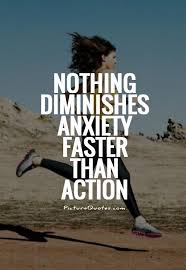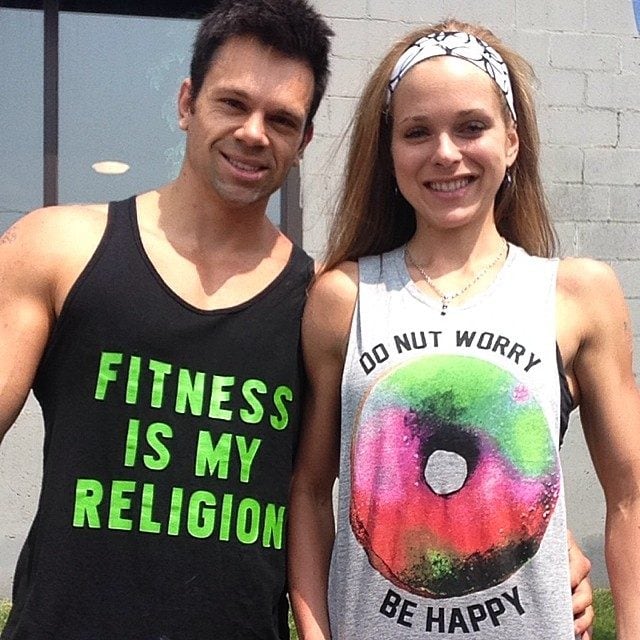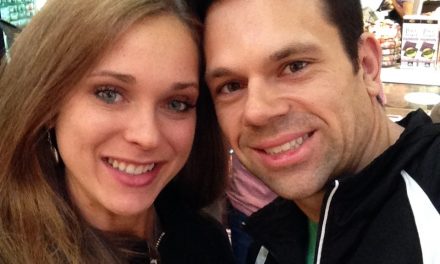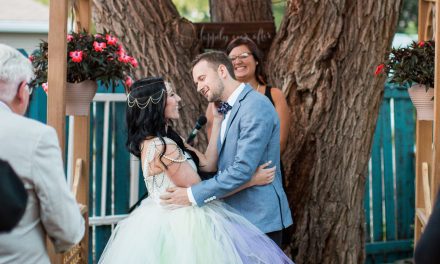“Give me the serenity to accept the things I cannot change, the courage to change the things I can, and the wisdom to know the difference. ” ~Reinhold Niebuhr
Contrary to popular belief I haven’t always been little Ms. Butterflies and Bunnies.
The constant mental gymnastics went something like this… “Think about the future! Don’t do something you’ll regret! You need to plan for tomorrow! I wish I hadn’t done that! Will things ever work out? Why did they do that? Will I ever find happiness? Why has life made me the way I am? What’s wrong with me? Why can’t I lose weight?”… and so on and so forth…
Around and around it went inside my mind, a never-ending internal conversation full of questions and uncertainties—the not knowing driving me insane and the desperation increasing every day. I must be able to resolve this, I thought. I need answers. I was overwhelmed by questions, uncertainty, indecision, paralysis, and fear. It was a classic case of paralysis by analysis.
I couldn’t hold on to jobs or relationships. I became depressed, hurt the people I loved, and coped with it all by losing myself in unhealthy habits. I was either reckless or petrified. I couldn’t communicate for fear of saying the wrong thing, but I desperately wanted to tell someone.
The truth is I felt liberated when I couldn’t think. When the internal conversation was either struck dumb or so garbled I could laugh it off, I had some sort of respite.
Later I would learn that I was self medicating for a generalized anxiety disorder but, at the time, I just new that being out of my mind was preferable to being in it.
Change Is Possible When We Act Mindfully
I was extremely lucky. I was able to remove physically myself from the chaos. I left Manitoba and my lifestyle of disordered eating, and addictions behind. Currently I live in a society that has within it people who understand and services that give support. Most importantly, I have an incredible husband and supportive friends.
When I needed it, was ready to make a change, and able to accept responsibility for my own behavior, my recovery began.
 During my recovery I was taught and used a behavioral model called Acceptance and Commitment Therapy (or ACT.) This is based upon three basic concepts.
During my recovery I was taught and used a behavioral model called Acceptance and Commitment Therapy (or ACT.) This is based upon three basic concepts.
Acceptance
I learned to foster greater acceptance for my own thoughts and feelings, other people, events beyond my control, and the beliefs I held at any given moment. By doing so I was able to break away from my preoccupation with anxiety and focus upon my recovery.
Commitment
I committed to change—to focus upon moving toward the things that really mattered in my life and to travel through the spiral of change on my own journey of recovery.
Behavior
I changed my behavior through mindfulness. I learned that regardless of my circumstances or the thoughts that colored my perception, my behavior could either move me away or toward the things that mattered to me. I had a choice. Not necessarily an easy choice, but a choice nonetheless.
The Importance of Just Being
I was one of the many with an addiction who had learned to act mindlessly. This is not to say that my behavior was without reason. Far from it.
I always had good reasons to get wasted or binge. I was feeling anxious and told myself I couldn’t cope, or I was angry and couldn’t see the point, or I was happy and felt like celebrating. In fact, I had an inexhaustible supply of reasons.
I had learned a coping strategy that enabled me to manage my condition. Just like learning to drive or making coffee in the morning, I behaved on autopilot, without awareness of my own behavior.
There’s nothing wrong with this psychological process. It’s an important part of being able to function. If every time you got behind the wheel or wanted a coffee you had to consciously relearn the process, your day would soon become totally unmanageable.
Autopilot behavior like this is learned by repetition and sits in our subconscious, ready to be put into action when we need it. This is fine as long as the behavior benefits us and moves us toward the things that we need. Like driving us to work.
The problem comes when the behavior not only takes us away from the things we value but also starts to create more problems than it solves.
This was the nature of my addiction. Beyond the physical dependency (brutal but relatively short lived), I discovered that my sense of self had been replaced by a yearning to be someone or something else. Something not me. Not me at all.
I’d developed an obsession with wanting to become—become free from anxiety; become a more interesting person; become relaxed; become fulfilled; become happy.
It was my desperation to change that led me to stay the same for years.
 How Living In The Now Changes Everything
How Living In The Now Changes Everything
Acting mindfully and being aware of the now changed everything for me. As Eckhart Tolle so wisely wrote, “…the past gives you an identity and the future holds the promise of salvation, of fulfillment in whatever form. Both are illusions.”
I discovered that I am not who I think I am.
My thoughts are my own but they do not describe me. Because I think or feel anxious, that doesn’t mean that I am anxious. It means I am experiencing the symptoms of anxiety, not that I am anxiety.
If I am aware of now, then I notice these symptoms as they elevate my heart rate, dry my mouth, place intrusive thoughts in my mind, and push me toward “fight or flight response.”
By noticing these sensations, I can be an observer of them and no longer a slave to them. I choose to identify them and give them a name. I choose to look at them in their stupid faces. Yes, it’s uncomfortable, but I have learned to be comfortable with feeling uncomfortable.
I do not need to compensate for the things I feel or believe because they are simply thoughts and sensations that cannot harm me.
If we are self-aware and mindful of behavior, then we can exercise choice over what we do right now. We can act, not in response to the pressure of our thoughts and feelings, but because we are aware of what we value.
Noticing is key. If we don’t notice what’s happening, then we can’t have a choice over how we respond to those things (whatever they may be).
If I go to a room I’ve never been in before, open the door, and meet a person I’ve never met before who then tells me that I look ugly, I will have an emotional response. I can no more control those circumstances or my emotional response than I can the orbit of the planets.
By noticing my reaction, I can accept my thoughts, feelings, and the reality of my situation. If I don’t, I will probably just react to the way I feel. Perhaps I’ll cry, slap a bitch, or even take a substance to “help me calm down.” However, if I am aware and I notice what’s going on for me, then I have another option.
I can pause before I act. I can choose my behavior based upon my awareness of both the situation and what matters to me.
I have let go of trying to change the way I feel, and of trying to become something or someone else. I am simply living in the now and only my behavior shapes my destiny, regardless of my thoughts.
I am aware of my behavior and I can control it; and, in doing so, I am living my life with purpose.
If you, like me, have struggled or are continuing to struggle with anxiety, mindfulness could help you, as well. You are not your thoughts, beliefs, and feelings. You don’t need to try so hard to control them; you just need to accept them and come into the present moment so you can control what you do.
With love from the Trench kitchen,
xoxoErika♥










